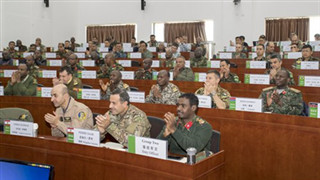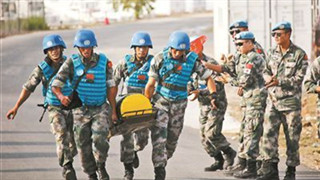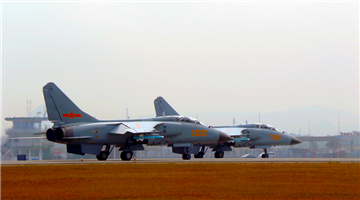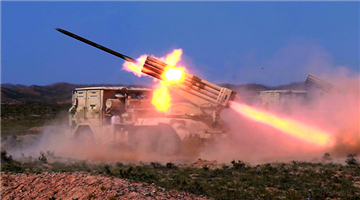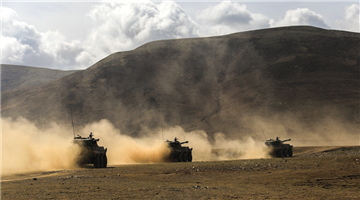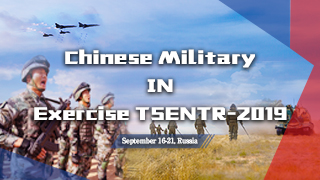By Wu Zhenglong
Istanbul recently announced that it will launch military operations in the east of the Euphrates in north Syria and set up a "safe zone" there. During a phone call with Turkish president Erdogan on the evening of October 6th, US president Donald Trump said US troops will not support or be involved in the operations and will withdraw from relevant regions.
What does Washington's decision imply and how will it affect the situation in Syria?
First, the US has given Turkey a "blank check". The idea of a "safe zone" on the Turkey-Syria border was proposed by the Trump administration in the beginning of this year to protect its ally, the Kurdish armed forces in Syria, from being attacked by Turkey. But no agreement was reached because Istanbul and Washington had major differences regarding the coverage of the safe zone, who will control the zone, and whether or not Kurdish armed forces should completely withdraw from the zone. Syria was opposed to establishing such a zone because it considered that as an infringement upon its territorial and sovereign integrity.
Turkey wants to set up the "safe zone" for three considerations. For one thing, to accommodate about one million Syrian refugees currently staying in Turkey, thus mitigating their political and economic pressure on the country. For another, to serve as a barrier that separates Turkey from the Kurdish armed forces, which are deemed by Istanbul as a branch of the Kurdish Workers Party and a terrorist organization that threatens its national security. The "safe zone" can help Turkey get rid of this giant headache. At last, to achieve Turkey's plan of demographic migration. Istanbul's plans for the zone will change the traditional places of residence for Syria's different ethnic groups. Driving the Kurds out of the safe zone and launching a massive migration, the tragedy of the Israeli-Palestinian conflict could happen again.
Second, the US has given Kurdish armed forces "a stab in the back". Washington's decision didn't mention the Kurdish armed forces at all, which means it has dumped the partner that once fought together with it against the IS, suffering immense casualties and making exceptional contributions to the final win. America's betrayal has made its ally disappointed. What's worse, its withdrawal of troops from relevant regions will expose Kurdish armed forces directly to Turkish troops.
Third, the US would give Syria and Russia a generous present. Before joining the US-led anti-IS international alliance, Kurdish armed forces in Syria had maintained an ambiguous relation with Damascus, and now Washington just gave it another push that way. Besides, the Syrian government has long wanted to re-occupy Deir al-Zour, a critical route controlled by Kurdish armed forces. Now that they no longer have air defense from American troops, Damascus and Moscow could easily cut a political deal with them without firing a bullet, or simply force a nod from it with overwhelming military pressure.
Fourth, the US might give the dying IS a "cardiotonic", as the security "vacuum" left by the withdrawal of American troops would give IS the chance of revival. Both Washington and Istanbul said that after American troops withdraw from relevant regions, the IS extremists captured in the past two years and currently detained in the region will be handled by Turkey. But how? It's easier said than done. At present, Kurdish armed forces have more than 10,000 IS militants under their custody. It is reported that the IS leader Baghdadi has called on extremists to try all means to save those captives from the prison or concentration camp, while the forces watching them are likely to give up the custody in order to cope with military attacks from Turkey, which without any doubt will be an opportunity for IS to enlarge its strength and possibly make a comeback.
Fifth, the US would leave the world with an eye-popping tweet. Washington's decision means that in face of an impeachment investigation at home, Trump still puts honoring his commitment made during the presidential campaign to withdrawing troops from hotspot areas like Syria above all the other matters. If anyone in the cabinet opposes this decision, former defense minister Mattis is a good example.
In sum, Washington's decision will lead to aggravated turmoil in Syria, and it will be more complicated to solve its issues through political settlement.
(The author is Wu Zhenglong, former Chinese Ambassador to Croatia and Guyana, and contributing commentator to the Global Times.)
Disclaimer: This article is originally published on huanqiu.com, and is translated from Chinese into English and edited by the China Military Online. The information, ideas or opinions appearing in this article do not reflect the views of eng.chinamil.com.cn.
